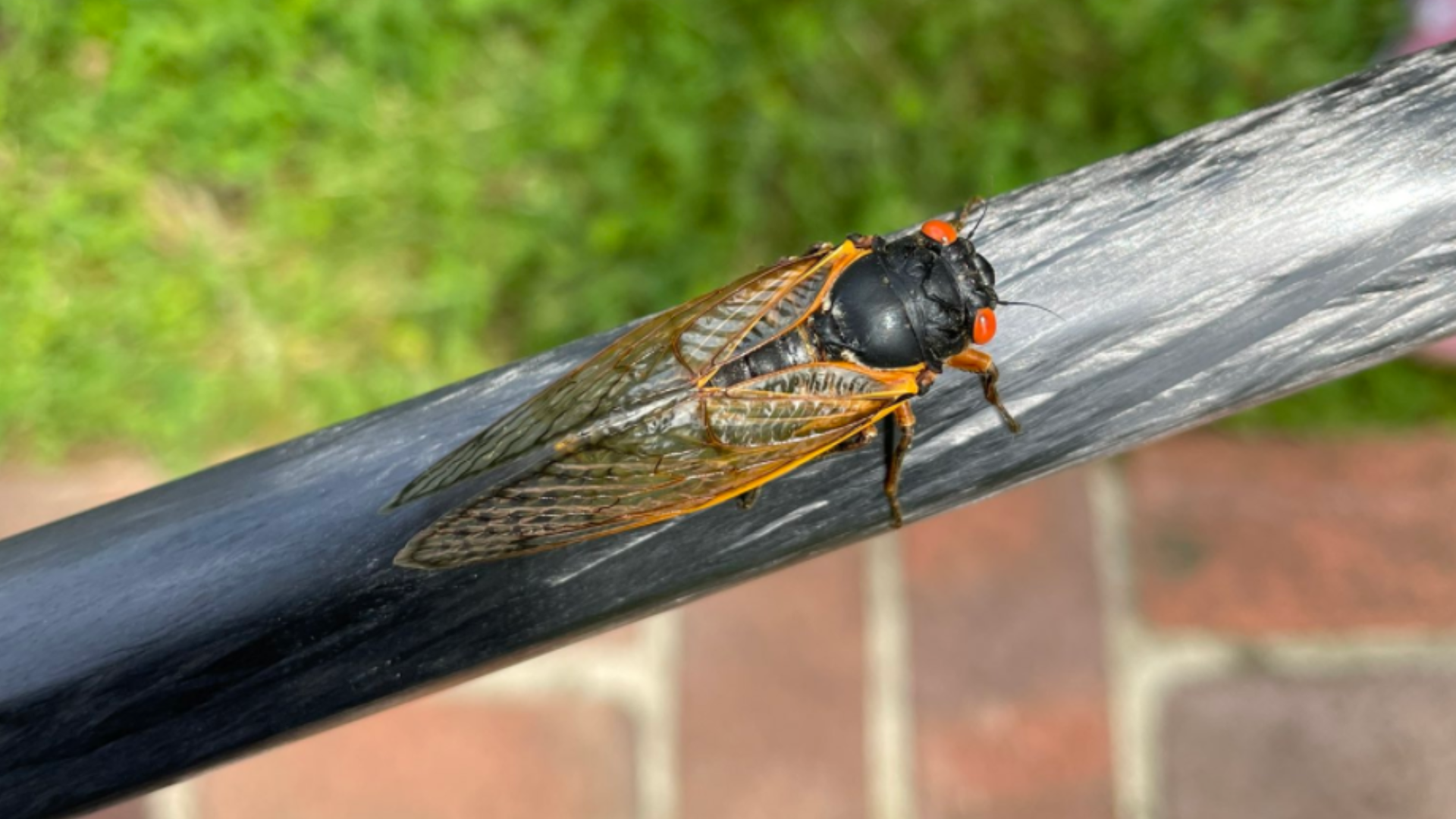WASHINGTON — Brood X Cicadas have taken over much of the northeast. They litter the skies, the sidewalks and the trees. The seemingly constant barrage of exploding cicadas on windshields led many on social media to wonder whether cicadas are blind and can't see oncoming traffic, and when they'll finally disappear.
The Verify team took those questions to the experts.
THE SOURCES
- Zoe Getman-Pickering, Entomologist at George Washington University
- Dr. Floyd Shockley, Entomologist and Collections Manager for Entomology at the Smithsonian National Museum of Natural History
- A 2015 Australian study, "The visual system of the Australian ‘Redeye’ cicada (Psaltoda moerens)"
When will Brood X cicadas be gone?
Our experts estimate Brood X adult cicadas will be dead by late June or early July. The little guys we see flying around (and mating and screaming) right now are at the end of their life cycle — They're here for a good time, not a long time.
The female cicadas are currently laying hundreds of their eggs in our tree branches. But pretty soon, they'll all die. In a few weeks time, the babies, called nymphs, will drop from the trees and dig back down into the ground to grow up for 17 years. We won't see them again until 2038. Smithsonian Entomologist Dr. Shockley explains people likely won't notice them dropping because they are very small.
As for the carcasses of the dead cicada adults, Shockley says they'll decompose quite quickly; it should take about a week or two.
Are cicadas blind?
Entomologist Zoe Getman-Pickering says we still don't really know how well cicadas can see. But, she assured our Verify researchers that cicadas are not blind.
A 2015 study of Australian cicadas found that they can see, but only about 15 centimeters in front of them. Although the species studied is different from our U.S. Brood X cicadas, Getman-Pickering pointed to it as a piece of evidence that the red-eyed bugs are not actually blind.
The study declares that cicadas live a "visually guided lifestyle," as opposed to moving about the world using their other senses. Researchers also found that covering their little eyes impeded their flight abilities, further proving they can see at least a little bit.
As for why they seem to get hit by so many cars, Getman-Pickering told us via email that it's no different than any other member of the animal kingdom being in the road at the wrong time.
"Often cicadas aren't flying into people's windshields, they are just flying and are hit by the moving cars. Most animals around the world aren't good at seeing and responding to fast-moving cars," she explains. "However, anecdotal evidence does suggest that the cicadas are clumsy flyers and perhaps not very good at seeing."

